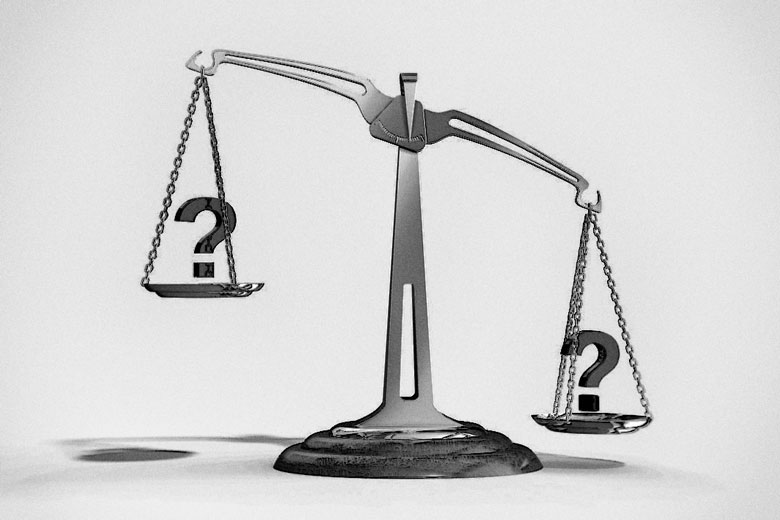
It’s a daunting question. If God wants all human beings to be saved — and surely he does — then why aren’t the requirements of that salvation clearer? This is a central theme woven through my book What’s So Confusing About Grace? (reviewed on this blog here), a theological memoir spanning a forty year journey trying to understand the nature of God’s grace.
I started off that journey assuming that salvation was simply a matter of right belief. But over time I began to face a growing list of nagging questions that challenged that paradigm. In this article I briefly consider three of them.
What must you believe if you are to be saved?
In my conservative upbringing, conversion and faith were first of all about belief. You needed to believe particular doctrines about God and his Son, Jesus. But which statements of doctrine do you need to believe in order to be saved? The disturbing fact, as I soon discovered, is that Christians don’t agree on how to answer this question.
It is hard to convey just how disturbing this fact of disagreement was, but consider this analogy. Imagine that a deadly plague is spreading across the landscape. Fortunately, medical personnel have identified a vaccine to protect people from this terrible plague. Great news, right?
So you think. But then you discover that there is extensive disagreement among those health professionals on how the vaccine should be administered in order to make it effective. Some say it should only be taken on an empty stomach while others insist it should only be taken with food. Some people insist that a booster shot is required while others warn that the booster could actually undermine the vaccine’s effect.
What good is a vaccine if there is no agreement on how to administer it? And what good is the Gospel of saving belief if there is no agreement on what you need to believe to be saved?
At some point in junior high school I appeared to find a biblical answer to my question and it came in Romans 10:9:
If you declare with your mouth, ‘Jesus is Lord,’ and believe in your heart that God raised him from the dead, you will be saved.
There it was in black and white, straight from Paul himself: Believe Jesus is Lord and believe that God raised him from the dead. At last, that is what is required. Problem solved, right?
What must you not believe if you are to be saved?
Then again, maybe not. Around the same time I discovered Romans 10:9, I also began hearing about Mormons, a group that wasn’t saved because they hold false doctrines. Intrigued, I read a book that was popular at the time, The God Makers, which solidified my concerns. According to that book, Mormons held a range of errant doctrines — like the idea that human beings can become gods — and those beliefs placed them outside of salvation.
Think of salvation as being like the fabled Scales of Justice. On the salvation side, you could put the beliefs that Jesus is Lord and God raised him from the dead. So far so good. But then on the damnation side rested distinctly Mormon beliefs, like the idea that human beings become gods. Those beliefs are so in error that they outweigh the correct beliefs on the salvation side of the scale. Consequently, it turns out that even Romans 10:9 offers no guarantee of salvation.
You might think, so much the worse for Mormons! However, it didn’t take a lot of reflection to realize I could flip that disturbing dilemma back on myself. I too believed that Jesus is Lord and God raised him from the dead.
Okay, but then did I have any errant beliefs on the damnation side of the scale? Beliefs that were sufficiently in error so they could outweigh the salvific benefit of the correct beliefs on the salvation side?
The bottom line is, I simply didn’t know.
And while we’re on the topic, if it is just as important to avoid believing the wrong things as it was to believe the right things, then why didn’t Paul say that? Why didn’t he include a footnote to that effect along with Romans 10:9? That definitely would have helped me!
When are you responsible for believing?
As I contemplated the prospect of believing the right doctrines and disbelieving the wrong doctrines, I soon faced another equally disturbing question: what’s the deadline for getting all this sorted out?
Ever since I was a kid, I heard Christians talk about a so-called age of accountability. The idea went like this: before that mysterious age you weren’t accountable for your beliefs: God would benevolently save you regardless of what you believed. But after that age everything suddenly changed: now you were accountable and you could go to hell forever for believing the wrong doctrines … or failing to believe the right ones.
The mysterious age of accountability certainly had its appeal: after all, it doesn’t seem like God would damn babies and toddlers for getting doctrine wrong. Ergo, so it seemed, there must be a period where you are counted innocent.
That said, the doctrine also had a lot of problems. Here’s the first one: where does the Bible teach this so-called age of accountability? The short answer, as I soon discovered, is that it doesn’t. The best anybody could come up with in terms of a biblical precedent appeared to be David’s statement that he would one day join his deceased infant son (2 Samuel 12:23). But of course, that passage doesn’t teach or even imply an age of accountability. All it says is that David will one day join his son in death: a thin reed indeed on which to base such an existentially critical doctrine.
The second problem is that the age of accountability is a binary concept. It’s as if God flips a switch on (for example) a child’s thirteenth birthday so that suddenly that child moves from being innocent to damnable in an instant. The problem is that accountability doesn’t work like that. Rather than being binary, accountability comes in degrees. To put it simply, the older you get and the more you know, the more accountable you are. Consequently, the notion of a binary choice between innocence and accountability just didn’t make much sense.
Finally, nobody could say when this age of accountability began. I noted a moment ago that it could occur on a child’s thirteenth birthday. That might seem like a reasonable first guess, but a “reasonable first guess” is not enough: surely we shouldn’t need to guess about the moment a perfectly loving and wise God makes you damnable!
To illustrate the problem, just contrast this state of affairs with the age of majority. When you become an adult you become responsible for legal contracts and adult crimes. Consequently, the government is very clear on when the age of majority occurs because it matters!
If there is an age of accountability, it marks a shift of unimaginably greater import than the mere age of majority, for here we’re talking about the shift from heavenly innocence to ready-for-hell damnability. Despite the undeniable importance of this date, God was maddeningly silent on when it occurs. And this just made no sense.
Conclusion
The problem is that these questions never went away. Instead of finding answers, I found the questions themselves remaining as they gradually eroded my confidence in this entire way of thinking about salvation. There’s only so long that you can live with this kind of cognitive dissonance before you begin to suspect that the right belief approach to salvation is critically flawed.
I now have a different approach to salvation. To be sure, I don’t discount the importance of right belief. Indeed, as a theologian, I believe that getting theological beliefs right is very important. But at the same time, I no longer locate salvation with checking all the right belief boxes. And I owe that change in perspective to the promptings from these unanswered questions.
For more on my understanding of salvation, including my answer to these conundrums, see What’s So Confusing About Grace?
Photo via Pixabay, edited by Dan Wilkinson.
 About Randal Rauser
About Randal Rauser
Randal Rauser is Professor of Historical Theology at Taylor Seminary in Edmonton, Alberta. He is the author of many books, including What’s So Confusing About Grace? (2017), Is the Atheist My Neighbor?: Rethinking Christian Attitudes toward Atheism (2015), The Swedish Atheist, the Scuba Diver, and Other Apologetic Rabbit Trails (2012), and You’re Not as Crazy as I Think: Dialogue in a World of Loud Voices and Hardened Opinions (2011). Rauser blogs and podcasts as The Tentative Apologist at randalrauser.com.